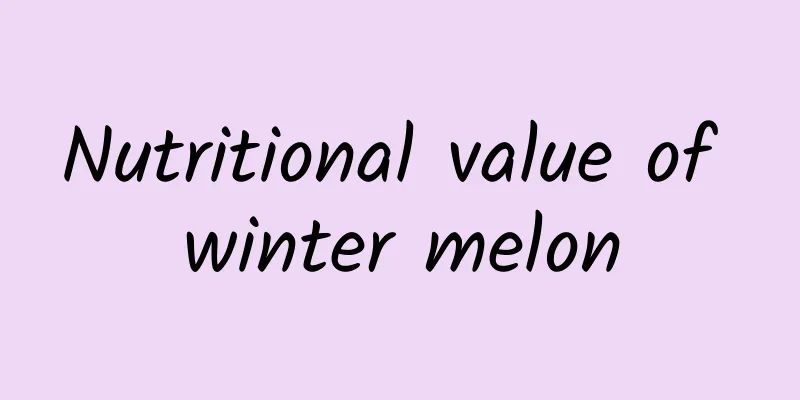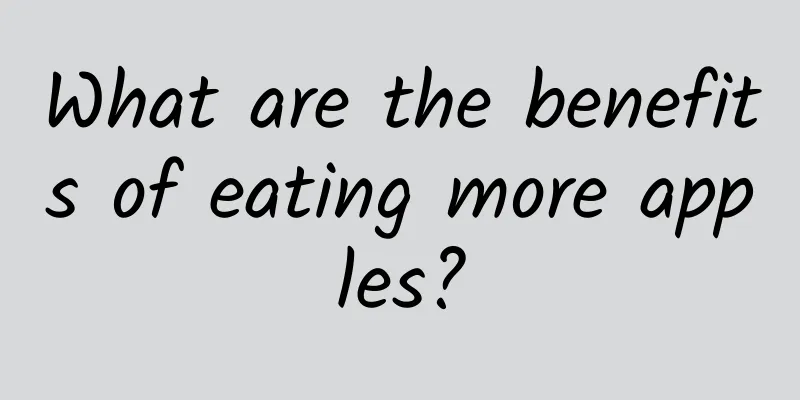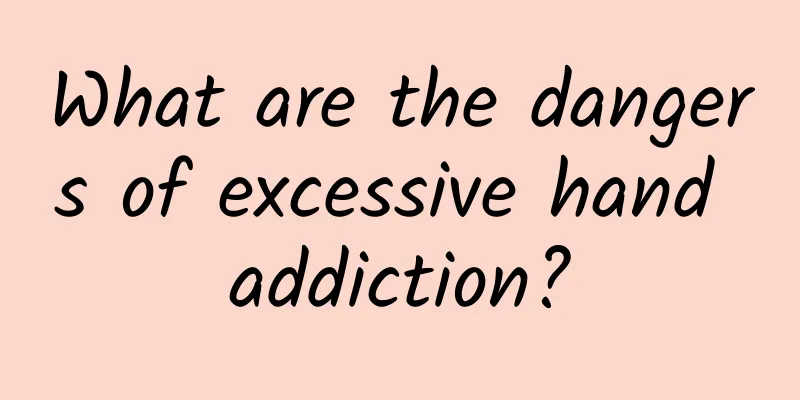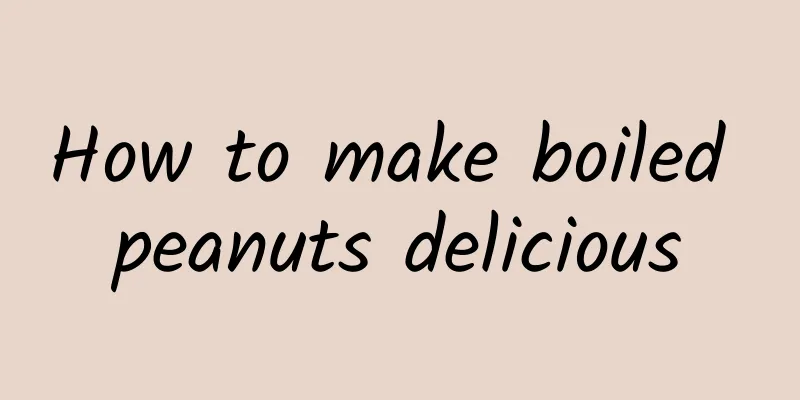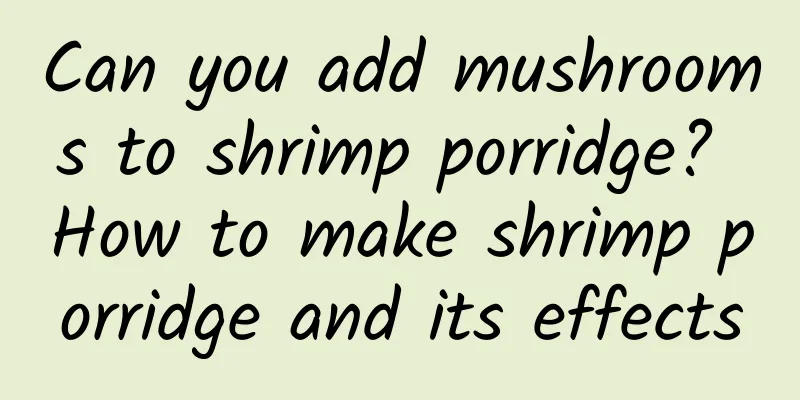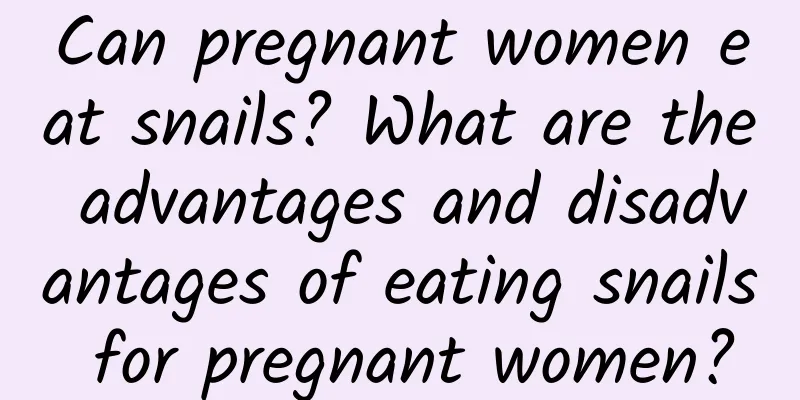What foods can't be eaten with persimmons?

|
Persimmon Introduction: Persimmon is the fruit of the deciduous tree plant Diospyros kaki of the Ebenaceae family. There are many varieties. The main producing areas are Hebei, Beijing, Henan, Shandong, Shanxi and other provinces and cities. The famous variety is the big-capped persimmon, which weighs 224 grams on average and 450 grams at the largest. The fruit is oblate with a constriction in the middle. It is of excellent quality, seedless and high yield. Gaozhuang persimmon is also a famous variety, mainly produced in Changping County, Beijing. The fruit is large, 3 to 4 per 500 grams, short cylindrical, with a cross-shaped longitudinal groove on the fruit surface, shallow constriction, and sweet. In addition to being eaten fresh, persimmons are often dried to make dried persimmon cakes, also known as persimmon peaches, which can be used as fillings for desserts. Persimmons are a fruit that people like to eat. They are sweet and delicious, rich in nutrients. Many people also like to eat frozen persimmons in winter, which is very delicious. Persimmons have high nutritional value, and the vitamins and sugars they contain are about 1 to 2 times higher than ordinary fruits. If a person eats one persimmon a day, the vitamin C he or she ingests can basically meet half of the daily requirement, so eating some persimmons is very beneficial to human health. Persimmon nutritional analysis:1. Persimmon can effectively supplement human nutrients and intracellular fluid, and play a role in moistening the lungs and promoting the production of body fluids; 2. Persimmon contains a lot of vitamins and iodine, which can treat local goiter caused by iodine deficiency; 3. The organic acids in persimmons help digestion, increase appetite, and have the effect of astringing the intestines and stopping bleeding; 4. Persimmons can promote the oxidation of ethanol in the blood, help the body excrete alcohol, and reduce the damage of alcohol to the body; 5. Persimmons help lower blood pressure, soften blood vessels, increase coronary artery flow, promote blood circulation and reduce inflammation, and improve cardiovascular function. What should not be eaten with persimmons:Persimmons cannot be eaten with the following foods: 1. Seafood and seaweed (such as fish, shrimp, crab, seaweed, kelp, seaweed): Vomiting, bloating, abdominal pain, diarrhea, etc. will occur. Because persimmons contain tannic acid, when they encounter nutrients such as protein and calcium that are rich in aquatic products, they will precipitate and solidify, forming substances that are difficult to digest. At the same time, tannic acid also has a sword-astringing effect, which can inhibit the secretion of digestive juices, causing solidified substances to remain in the intestines for a long time, thereby causing fermentation. Therefore, after eating seafood, you should wait for more than 4 hours before eating persimmons. 2. Sweet Potato: Sweet potatoes contain tannins and colloids, which can stimulate the stomach wall to secrete gastric acid, causing discomfort such as heartburn; sweet potatoes contain gastrointestinal enzymes, which can also cause heartburn, acid vomiting, bloating and flatulence after eating. If you eat persimmons after eating sweet potatoes, precipitates will form under the action of gastric acid. The precipitates will form water-insoluble gastric stones together, which are difficult to digest and excrete. People with chronic gastritis, delayed gastric emptying, indigestion and other low gastric motility functions, and those who have undergone subtotal gastrectomy should not eat persimmons. Persimmons have a high sugar content, so diabetics should not eat them either. 3. Wine: It is said that you should not eat persimmons before, during or just after drinking alcohol to avoid poisoning or physical discomfort. Eight things not to do when eating persimmonsIt is not advisable to eat too many unripe persimmons, eat persimmons on an empty stomach, eat persimmons when overworked or tired, eat persimmons with vegetables and other foods that contain a lot of fiber, eat persimmons with chronic gastritis, indigestion and other poor stomach function, eat persimmons after a subtotal gastrectomy, eat persimmons with diabetes, and try to eat less persimmon skin when eating persimmons |
<<: What can't be eaten with persimmons? What can't be eaten with persimmons?
>>: Can pregnant women eat persimmons?
Recommend
How is the University of Regensburg? Reviews and website information of the University of Regensburg
What is the website of the University of Regensbur...
The efficacy and function of jujube and the medicinal value of jujube
The jujube is the fruit of the plant Citrus auran...
The nutritional value of mustard seeds
Mustard seeds, also called green mustard seeds or...
The efficacy and function of orange peel and the specific usage of orange peel
Orange peel is a very common thing in life. It is...
How is the American Correction Company CCA? American Correction Company CCA reviews and website information
What is the website of Corrections Corporation of ...
What is Zooey Deschanel like? Zooey Deschanel reviews and website information
What website is Zooey Deschanel? Zooey Claire Desc...
What can't be eaten with pig liver?
With the development of life, many people are not...
What are the Texas Rangers like? Texas Rangers reviews and website information
What is the Texas Rangers website? The Texas Range...
The harm of cooking with olive oil What are the side effects of cooking with olive oil
Olive oil is extracted directly from olive fruits...
The benefits of eating bamboo shoots
Have you ever eaten bamboo shoots? Do you know wh...
How is Queen Mary College? Queen Mary College reviews and website information
What is Queen Mary College? Queen Mary, University...
The simplest method of making banana enzyme
Enzymes can supplement the human body with rich v...
Who is not suitable to eat green plum essence? What are the hazards of eating too much green plum essence?
Recently, many people who pay attention to health...
How to make mulberry paste? How to make mulberry paste?
Mulberry paste is a nutritious health food. It ca...
What is the Proceedings of the National Academy of Sciences? Reviews and website information of the Proceedings of the National Academy of Sciences
What is the website of Proceedings of the National...

